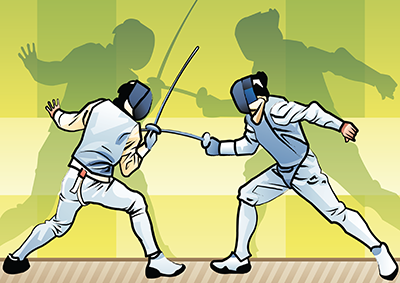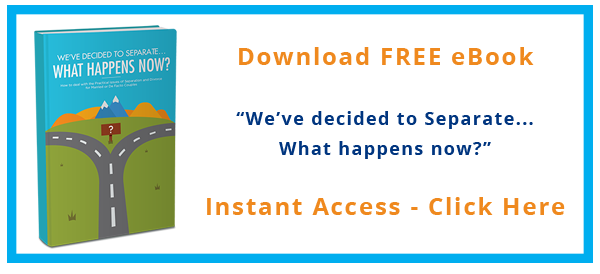Humans are one of only a few animal species who mate for life (sometimes). We’re joined in this practice by whales and geese, and these animals don’t get accused by their mates of “not being present.”
Humans are the only animals with a concept of past and future, and these concepts set up expectations that can doom relationships. We compare our present partner to the last one or the imaginary next one—these idealisations set up impossible standards.
How do you know if this relationship is doomed, if it can be saved, or even if the relationship is worth saving?
There’s no magic formula, but there are some questions you can ask to determine where the relationship stands. Enlisting the help of a good couples therapist will lend more clarity to the situation. A skilled therapist will help both partners understand their own negative patterns and how to create healthy, loving ones instead.
At the root of the relationship lies one question, which both partners must answer: does being together increase or decrease everyday wellbeing and happiness?
Before you read the follow-up questions to that main one, there’s another point that must be addressed. If there’s violence in the relationship, you need professional help, a separation, or both. Violence is obviously traumatic to the abused party, but it’s also bad for any children involved (even to witness it), and sometimes for family members and friends outside the relationship.
- Do you like to be together?

Do you like to spend time together?
It’s nearly impossible to get back the initial spark of a relationship once it burns out. There are actual physiological reasons for the wild attraction that happens at the beginning, and successful relationships learn to adapt to the next phase.
However, if you’ve come to the point where neither of you can stand to be in the same room, this is a bad sign. If it’s always a chore to get through another silent dinner, why do you keep having dinner together? One of the main reasons we enter into relationships is to enjoy another human’s company. Relationships take work to succeed, but they shouldn’t be hard labour every day.
- Do you trust your partner?

Trust isn’t always about the BIG things
Fully trusting another person is one of the hardest things to do. Our every instinct seems to warn against it, but for some people, we’ll take that leap. If you have given your partner your trust and they’ve repeatedly broken it, the relationship is in trouble. Breaking trust doesn’t have to be as obvious as cheating on you or stealing from your bank account. A pattern of small, seemingly harmless lies demonstrates a lack of commitment to the relationship. Your partner could be holding back information for purposes of control, in a kind of power play. When you confront them on this behaviour, what is their response? Are they evasive? Defiant? Mocking? All these are red flags.
Thinking about separating from your long-term partner? Download our Free e-Book “We’ve decided to Separate… What happens now?” It provides you with no-nonsense information about the legalities of separation and how you can manage a property settlement without spending a fortune in legal fees.
- Does respect flow both ways?

Is respect a two way street in your relationship?
Along the same lines as trust, mutual respect is critical for the health of a relationship. If either party is constantly belittling and patronising the other, for whatever reason, the relationship will fail. In many relationships, one spouse makes most of the income while the other raises the children and keeps house—there’s nothing wrong with this setup, as long as both roles are held in equal respect.
If you’re looking to improve yourself in some way—returning to university, losing weight, quitting smoking—and your partner stands firmly in the way of this change, that’s another sign of eroding respect. They feel so threatened by your possible change (and what it could mean for them) that they’ll tear you down to prevent it from happening.
- Are you able to fight with integrity, and move on?

Do you fight fair and move on? Or are the gloves off for another bloody encounter?
All human relationships involve conflict, it’s part of how we communicate. (Laughter, sex, hand gestures, and eye contact are a few other ways). In a healthy relationship, arguments lead to growth. When both people can put their egos aside and really listen, empathy and patience will bloom. In rocky relationships, where both partners are lashing out, blindly defending their positions and nursing old resentments, there’s no room for compassion. The relationship is in trouble.
A variation on this theme is when conflicts always turn physical (in other words, sex). While this sounds better than retreating to your separate corners, it’s unlikely that the core problem was resolved. It will resurface again later, and patching another round of sex over the issue may or may not help.
Finally, be honest with yourself if the relationship is clearly ending. You might want to save it, but your partner is on their way out. You can strive to fix this or that about yourself, spend a pile of money on them, beg them not to go—but you’re rearranging the deck chairs on the Titanic. When you’re alone in the desire to keep the relationship alive, the least traumatic thing to do is accept the loss, grieve it, and move on. A skilled relationship therapist can help greatly with that process too.
About Clinton Power
Clinton Power is a relationship counsellor, individual psychotherapist and the owner of Clinton Power + Associates, a private practice dedicated to helping singles and couples move out of relationship pain. Clinton’s book 31 Days to Build a Better Relationship is available for Kindle on Amazon. Follow Clinton on Twitter or Facebook.


